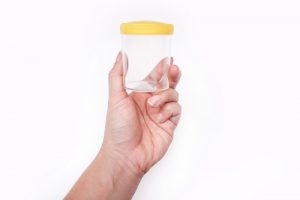
If you have been arrested for DUI in California you will be asked to take one of three kinds of tests: a blood test, breath test or urine test. No matter which kind of test it is, you are required by law to comply and take the test. In the case of a urine test, this means providing a urine sample that law enforcement can send to a lab for testing. If you refuse to take the test you are breaking the law (in addition to the DUI charge) and you will face extra penalties. You will lose your driver’s license for at least one year.
However, urine tests are the least common of the three DUI chemical tests, and there are things you should know about taking one. In many cases, a urine test is the “best” test you can take.
Why are police asking me to do a urine test?
If they ask you to do a urine test specifically, it probably means two things:
- They suspect you of using drugs, not (just) alcohol.
- There is probably no other test available.
This second one is important because urine tests are generally less reliable than blood tests, which are preferred for drug DUI cases. Many areas of California simply don’t use urine tests at all. So when they ask you for a urine sample, it could mean that the technician who would normally take a blood sample is unavailable, or that there is some other reason it’s the only test they have available.
This is good for you, because it means they have to use the weakest of the three tests.
What should I do when asked to take a urine test?
Cooperate. Technically, you are allowed to request once—only once—to use another type of test, such as a blood test. But blood tests are often harder to fight in court, so you should just stick with the urine test. Tell them you will cooperate, and follow their instructions. They will ask you to urinate once to “clear” your bladder, wait a short while, and urinate again.
Be aware that you have to urinate. If you claim you have problems urinating or “can’t go,” police will say you refused the test.
Why are urine test results so weak?
Urine tests are weak evidence because they don’t provide reliable evidence. Two people could use the same amount of drugs and get two different results from a urine test. And, someone who habitually uses marijuana, for example, will have high levels of its active ingredient in their urine even when totally sober. It simply stays in the system too long.
Plus, with a urine test your own lawyer can ask to split the sample. That means you get half of the urine sample to send to an independent lab of your own choosing. This lab can look for any errors in how the urine sample was handled or stored.
What are the penalties if I refused the DUI urine test?
For any DUI, if you refuse the blood, breath or urine test you will face longer jail time and a very long license suspension. This includes:
- First DUI: 1 year suspension (instead of the usual 4 months)
- Second DUI: 2 year suspension
- Third DUI: 3 year suspension
Additionally, first-time DUI offenders who refuse the test have to complete 9 months of DUI school instead of 3 months, and all DUI offenders face extra jail time for refusal.
Can I fight a refusal charge?
Yes. Some of the most common strategies for fighting a refusal charge include:
- Medical condition. Some individuals have medical conditions where it is painful to urinate or difficult to urinate at all. This can be a valid reason for declining the test, especially if you informed officers of your condition at the time. You will need medical evidence of your condition.
- Not warned of the consequences. Police must tell you that the test is required and explain the consequences of refusing it. If they did not, the “refusal” charge may not be valid.
Have you been charged with DUI? We can connect you with an experienced Los Angeles DUI lawyer and get you a FREE consultation. Fill out the form to the right or call (310) 896-2724 and get your free consultation today.






